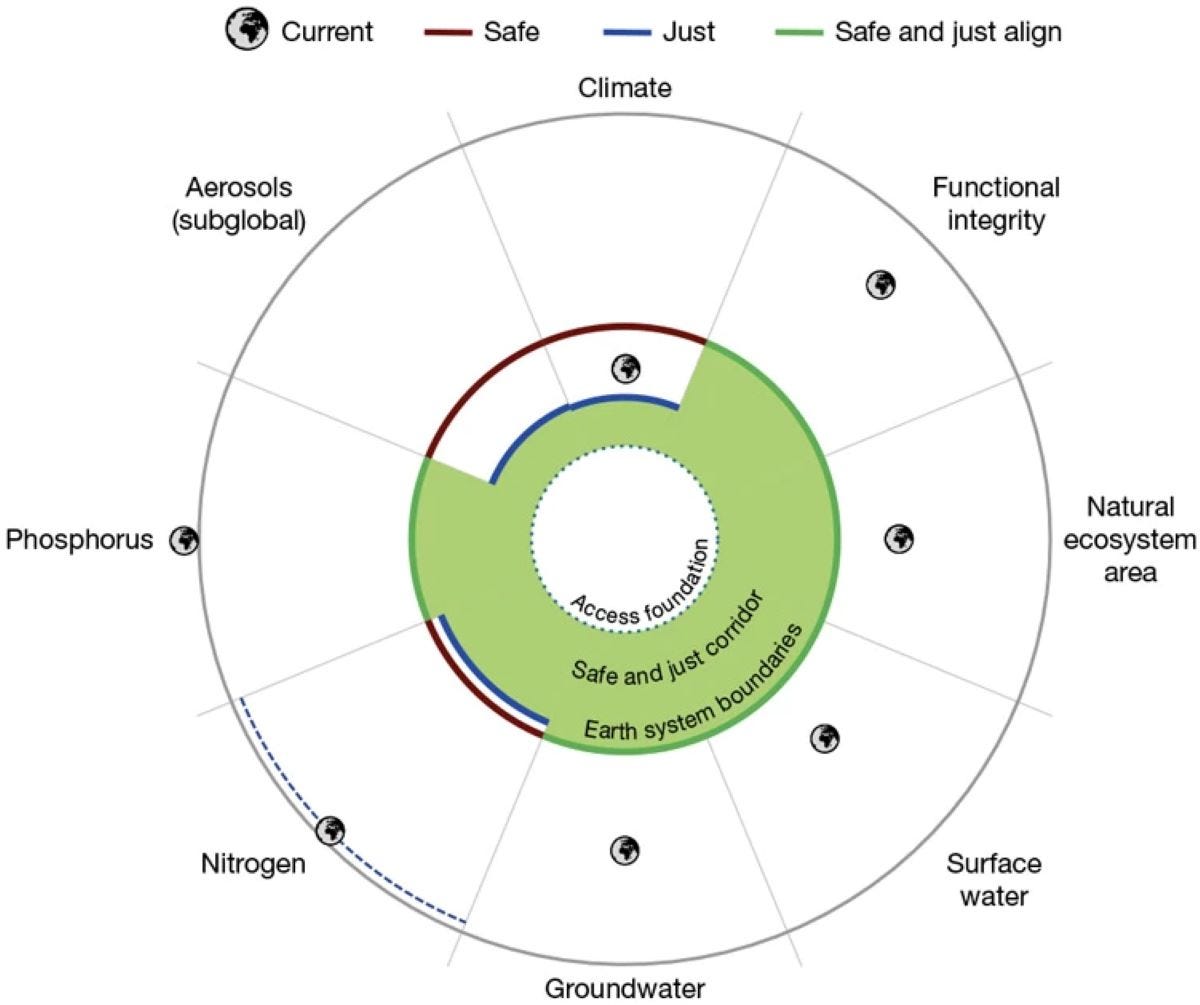Crossing the Earth system boundaries
Humans have crossed seven of the eight scientifically defined safety boundaries endangering Earth system stability
In 2009, a landmark paper in Nature showed that humanity had crossed three of nine ‘Earth-system boundaries’ (ECB): the limits of what the planet can support before human activities make it uninhabitable. Following up on this concept, a new study, published this week, also in Nature, finds that we have crossed seven of the eight safe and just boundaries. Only air pollution wasn’t quite at the danger point globally have been crossed. All others, climate, phosphorus and nitrogen contamination of water from fertilizer overuse, groundwater supplies, fresh surface water, natural ecosystem area and the overall ecosystem functional integrity, have already been crossed. The study for the first time includes measures of “justice,” which is primarily concerned with preventing harm to countries, ethnicities and genders.

What does that mean for our still-feeble efforts to move to a more sustainable path? asks a Nature editorial. Researchers vary widely in their views on how this question should be addressed. Some propose working within the current economic system, an idea known as green growth, which is based on the understanding that economic growth and development can continue while associated negative environmental impacts are reduced or eliminated.
Others argue for the transformation of the economic system; it is known as post-growth or degrowth. We must take measures to decrease the production and consumption practices that create environmental damage and concentrate wealth in the hands of a few. We need a different measure of wealth, one that reduces the pressure on the planet’s boundaries, that does not rely on population growth, increased production and consumption of “stuff.”
Fifty-five years ago, on 18th March 1968, Robert F Kennedy gave a speech at the University of Kansas in which he questioned the authority of the Gross National Product (nowadays called the Gross Domestic Product or GDP). He said:
“The gross national product does not allow for the health of our children, the quality of their education, or the joy of their play. It does not include the beauty of our poetry or the strength of our marriages; the intelligence of our public debate or the integrity of our public officials. It measures neither our wit nor our courage; neither our wisdom nor our learning; neither our compassion nor our devotion to our country; it measures everything, in short, except that which makes life worthwhile.”
― Robert F. Kennedy



